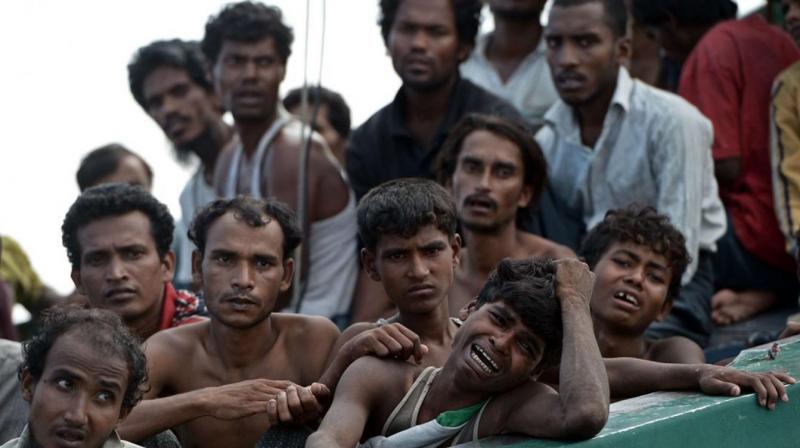European Union pushes Myanmar for aid access in northern Rakhine
The EU has pledged to give Myanmar some 800 million euros ($875 million) of development aid between 2014-20 making 2nd largest in Asia.

Yangon: A senior European Union official has urged Myanmar to allow full aid access to the north of Rakhine state, where thousands have fled their homes after a months-long army crackdown on Rohingya Muslims.
The area along the country's northwestern border has been under lock down since October, when the military launched a campaign to hunt down Rohingya militants who staged deadly attacks on police posts.
Some 100,000 people from the Muslim minority were displaced by the violence, most of them fleeing to Bangladesh and bringing with them harrowing stories of rape, torture and mass killings by soldiers.
Myanmar has rebuffed UN claims that its security forces may have committed crimes against humanity and has refused to allow international observers into the area.
De facto leader Aung San Suu Kyi this month publicly rejected a UN mission to probe the violence after meeting the EU's diplomatic chief Federica Mogherini.
European Union commissioner for aid Christos Stylianides said he pushed for unrestricted humanitarian access during a three-day visit to Myanmar, which included a tour of northern Rakhine.
"A lot of problems remain in order to see what we want about humanitarian access," he said. "I raised this issue a lot in my meetings, not only with ministers but also with the district commissioner of Maungdaw," he added, referring to one of the locked-down areas.
The EU has pledged to give Myanmar some 800 million euros ($875 million) of development aid between 2014-20, making it the second-largest recipient in Asia after Afghanistan.
Stylianides is the highest profile foreign official to visit northern Rakhine since UN rights envoy Yanghee Lee and former UN chief Kofi Annan, who leads a commission tasked with healing deep divisions between Buddhists and Muslims in Rakhine.
Over a million Rohingya who live in the coastal western state are treated as interlopers from neighbouring Bangladesh and denied citizenship, basic education and healthcare. Their movements are severely restricted.
Stylianides said some foreign aid workers had been granted access to northern Rakhine, but more must be done to help 16,000 people who are still displaced before the imminent onset of the monsoon.
The commissioner also raised concerns about a push to forcibly rehouse Rohingya in state-built "model villages" in areas where troops are accused of burning hundreds of houses to the ground.
"It's completely unacceptable to proceed on this project without the (voluntary) decision of the inhabitants," he said.

